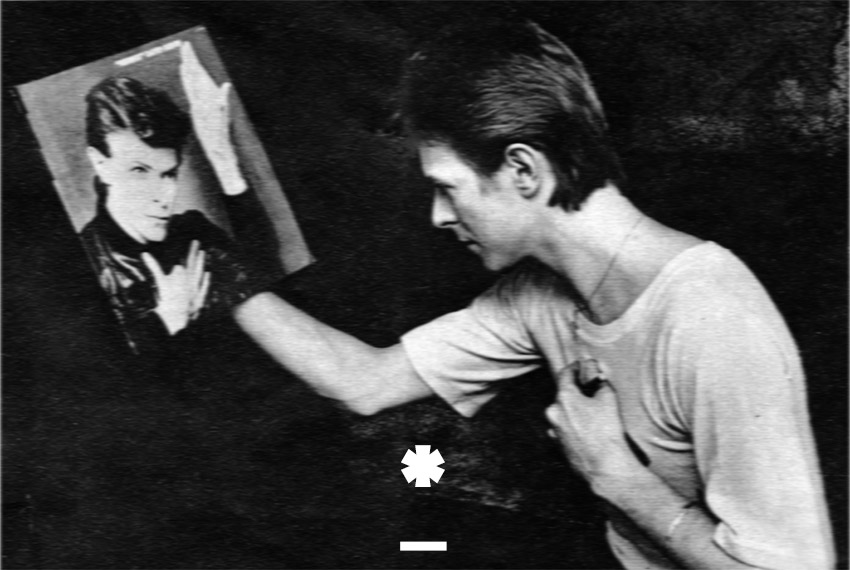1969-1971: The Man of Words / The Man of Music
SPACE ODDITY PERFORMED ON TV FOR THE FIRST TIME
This was the turning point. In 1967, a young David Bowie, shaken by the disappointment of his debut, undertook this first transformation. Turning his interest in the arts away from music, he spent time under the tutelage of noted dance and mime artist Lindsay Kemp. Through him he would try to learn the ways of stagecraft and performance. Outwardly, he’d learn how connecting imagery and mannerisms to music projected far more than mere recreation of it. Inwardly, he learned an ingrained sense of being able to see something fascinating in others, and to use these visions to create and inhabit characters of his own making.
David Bowie, my friend and colleague, left us Blackstar and 1000s of great memories. Not enough, really.
— Tony Visconti (@Tonuspomus) January 11, 2016
When this newfound Bowie grew his hair long, discovered Dylan and English neo-folk music, out came his first mystifying creation. “Space Oddity” was that hit. Outfitted with spare Mellotron lines by one Rick Wakeman, Bowie would intone recurring themes he’d revisit throughout his career. Equal parts wonderment and bewilderment, this song was the sound of Bowie trying to have at it both ways.
zZ SAMPLER: DAVID BOWIE 1969-1971
As Space Oddity Bowie transitioned into The Man Who Sold the World, one could see personal conflicts of interest starting to brew. Who did he want to be? Was it the free folkie interested in the remnants of Flower Power or was it this hard-nosed black country rocker trying to compete with the Blind Faiths of the world? These are the things that were at loggerheads by the time Hunky Dory rolled into town. Although he could challenge social mores by donning a dress and embracing a new kind of androgyny, somehow his own music hadn’t quite matched this outward transformation.
“OH YOU PRETTY THINGS” LIVE AT THE OLD GREY WHISTLE TEST
Hunky Dory gave hints of what lay ahead, some he had gleamed himself while viewing performances of Iggy Pop and Lou Reed, and others he realized by a sheer force called Mick Ronson. If David wanted to really embrace the fame that he coveted, and go beyond influences he was mining, the Andy Warhols and Next-Dylans of the day, he had to embrace certain changes. Behind the stage he could be David but on stage Ziggy would need to take over.




